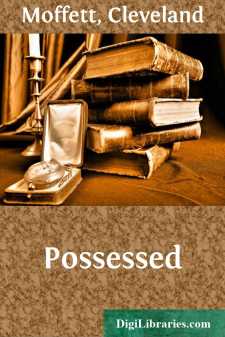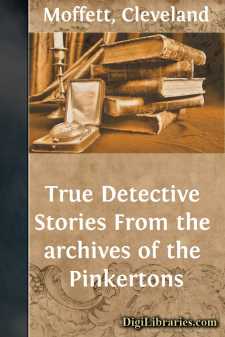Categories
- Antiques & Collectibles 13
- Architecture 36
- Art 48
- Bibles 22
- Biography & Autobiography 813
- Body, Mind & Spirit 142
- Business & Economics 28
- Children's Books 15
- Children's Fiction 12
- Computers 4
- Cooking 94
- Crafts & Hobbies 4
- Drama 346
- Education 46
- Family & Relationships 57
- Fiction 11828
- Games 19
- Gardening 17
- Health & Fitness 34
- History 1377
- House & Home 1
- Humor 147
- Juvenile Fiction 1873
- Juvenile Nonfiction 202
- Language Arts & Disciplines 88
- Law 16
- Literary Collections 686
- Literary Criticism 179
- Mathematics 13
- Medical 41
- Music 40
- Nature 179
- Non-Classifiable 1768
- Performing Arts 7
- Periodicals 1453
- Philosophy 64
- Photography 2
- Poetry 896
- Political Science 203
- Psychology 42
- Reference 154
- Religion 513
- Science 126
- Self-Help 84
- Social Science 81
- Sports & Recreation 34
- Study Aids 3
- Technology & Engineering 59
- Transportation 23
- Travel 463
- True Crime 29
Possessed
Categories:
Description:
Excerpt
SCARLET LIGHTS
This story presents the fulfillment of an extraordinary prophecy made one night, suddenly and dramatically, at a gathering of New Yorkers, brought together for hilarious purposes, including a little supper, in the Washington Square apartment of Bobby Vallis—her full name was Roberta. There were soft lights and low divans and the strumming of a painted ukulele that sang its little twisted soul out under the caress of Penelope's white fingers. I can still see the big black opal in its quaint setting that had replaced her wedding ring and the yellow serpent of pliant gold coiled on her thumb with two bright rubies for its eyes. Penelope Wells! How little we realized what sinister forces were playing about her that pleasant evening as we smoked and jested and sipped our glasses, gazing from time to time up the broad vista of Fifth Avenue with its lines of receding lights.
There had been an impromptu session of the Confessional Club during which several men, notably a poet in velveteen jacket, had vouchsafed sentimental or matrimonial revelations in the most approved Greenwich Village style. And the ladies, unabashed, had discussed these things.
But not a word did Penelope Wells speak of her own matrimonial troubles, which were known vaguely to most of us, although we had never met the drunken brute of a husband who had made her life a torment. I can see her now in profile against the open window, her eyes dark with their slumberous fires. I remember the green earrings she wore that night, and how they reached down under her heavy black braids—reached down caressingly over her white neck. She was a strangely, fiercely beautiful creature, made to love and to be loved, fated for tragic happenings. She was twenty-nine.
The discussion waxed warm over the eternal question—how shall a woman satisfy her emotional nature when she has no chance or almost no chance to marry the man she longs to marry?
Roberta Vallis put forth views that would have frozen old-fashioned moralists into speechless disapproval—entire freedom of choice and action for women as well as men, freedom to unite with a mate or separate from a mate—both sexes to have exactly the same responsibilities or lack of responsibilities in these sentimental arrangements.
“No, no! I call that loathsome, abominable,” declared Penelope, and the poet adoringly agreed with her, although his practice had been notoriously at variance with these professions.
“Suppose a woman finds herself married to some beast of a man,” flashed Roberta, “some worthless drunkard, do you mean to tell me it is her duty to stick to such a husband, and spoil her whole life?”
To which Penelope, hiding her agitation, said: “I—I am not discussing that phase of the question. I mean that if a woman is alone in the world, if she longs for the companionship of a man—the intimate companionship—”
“Ha, ha, ha!” snickered the poet. I can see his close cropped yellow beard and his red face wrinkling in merriment at this supposition....




